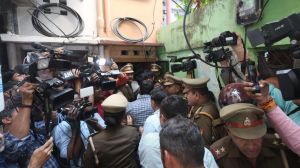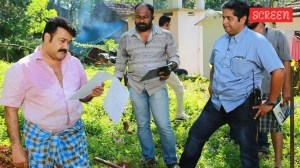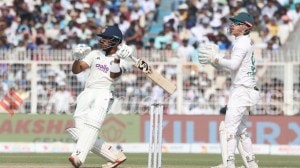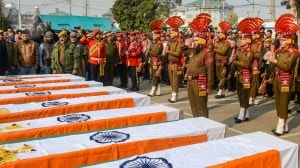Full text: PM’s address to the Nation
Here's the text of the speech of the Prime Minister on the occasion of 63rd Independence Day.
Following is the text of the speech of the Prime Minister on the occasion of Independence Day:
My dear countrymen,I heartily greet 120 crore Indians on the 64th anniversary of our independence.
I have been addressing you from the historic Red Fort for the last seven years. In these seven years,our country has achieved much. During this period,we have travelled rapidly on the path of development and have seen success in many areas.
However,I am also well aware that a lot remains to be done. We have to banish poverty and illiteracy from our country. We have to provide the common man with access to improved health services. We have to provide employment opportunities to each one of our youth. The road ahead is long and arduous.
Particularly,the prevailing situation both inside and outside the country is such that if we do not act with understanding and restraint,our security and prosperity can get adversely affected.
The world economy is slowing down. The developed countries especially America and countries of Western Europe are facing economic problems. There is unrest in many Arab countries of the Middle East.
There are some people who want to create disturbances in the country so that our progress gets stalled. All this can have a negative impact on us. But we will not let this happen. I know that if we work together,we can face any challenge.
However,it is necessary that we rise above personal or political interests and build consensus on issues of vital national importance.
Brothers and sisters,We are building the edifice of modern India on the foundation of the hard work and sacrifices of our soldiers,our farmers and our workers. We will not let their hard work and sacrifices go waste.
We will convert the dreams of our freedom fighters into reality.
Brothers and sisters,In the last seven years,our government has strived for political stability and social and economic progress. We have established an environment of communal harmony in the country.
In these seven years,the pace of our economic development has been rapid. We have achieved this success despite the global economic slow-down of 2008 and rising prices of energy and commodities in world markets. We have strived for reducing inequalities in the country.
In the last seven years,we have taken special care of the needs of our brothers and sisters from the Scheduled Castes and Scheduled Tribes,minorities,women and children. We have enacted laws which would guarantee our people their basic entitlements.
After the rights to education,employment and information,we will soon enact a legislation for providing food security to the people.
In the last seven years,our relations with various countries of the world have strengthened and deepened. It is only the result of our hard work that today we have much more self respect and self-confidence in ourselves.
Brothers and sisters,These successes are not ordinary. Today the world recognises our potential to be one of the major economic powers globally. But the problem of corruption is a big obstacle in such a transformation.
In the last few months many instances of corruption have come to light. In some cases,functionaries of the Central government face allegations of corruption. In other cases,it is the functionaries of various State governments.
We are taking the strictest possible action in cases of corruption that have surfaced. These cases are sub-judice and hence I will say nothing more on this subject.
It is essential that when we consider these issues,we do not create an atmosphere in which the country’s progress comes into question. Any debate on these matters should reflect the confidence that we can overcome these challenges.
Corruption manifests itself in many forms. In some instances,funds meant for schemes for the welfare of the common man end up in the pocket of government officials In some other instances government discretion is used to favour a selected few.
There are also cases where government contracts are wrongfully awarded to the wrong people. We cannot let such activities continue unchecked. I believe that there is no single big step which we can take to eradicate corruption. In fact,we will have to act simultaneously on many fronts. We will have to improve our justice delivery system.
Everyone should know that quick action will be taken against the corrupt and punishment meted out to them. If our system delivers justice in an effective manner,government officials would think twice before committing a wrong act out of greed or under political pressure.
We want a strong Lokpal to prevent corruption in high places. We have recently introduced a Bill in Parliament to achieve this. Now only Parliament can decide what type of Lokpal legislation should be enacted. I am aware of the differences of opinion on some aspects of the Bill.
Those who don’t agree with this Bill can put forward their views to Parliament,political parties and even the press. However,I also believe that they should not resort to hunger strikes and fasts unto death. It is not appropriate to bring the judiciary under the ambit of Lokpal.
We believe that any such provision would go against the independence of the judiciary. However,we do need a framework in which the judiciary becomes more accountable. It is with this aim that we have introduced the Judicial Accountability Bill in Parliament. I am confident that this Bill will be passed soon.
An alert press and an aware citizenry can be very helpful in the fight against corruption.The Indian press is known for its independence and activism throughout the world.
The Right to Information legislation that we have enacted has enabled our press and people to keep a strict watch on the work of the government.
Today many government decisions,which in the absence of this Act would escape public scrutiny,are coming to light. I believe that this is a big step forward in eradicating corruption.
Brothers and Sisters,Many times,government discretion is misused in allocation of scarce resources and in the grant of clearances. We have examined this issue. We will put an end to such discretionary powers wherever possible.
Any government awards contracts worth thousands of crores every year. There are frequent complaints of corruption in these decisions. We had constituted a committee to suggest measures to reduce corruption in government purchases.
Admitting that government discretion was “misused in allocation of scarce resources and in the grant of clearances”,Singh said they will put an end to such discretionary powers wherever possible and he hopes to enact a public procurement legislation by the end of this year.
“Any government awards contracts worth thousands of crores every year. There are frequent complaints of corruption in these decisions. We had constituted a committee to suggest measures to reduce corruption in government purchases.
“The committee has recommended that,like many other countries,we should also have a public procurement legislation which lays down the principles and practice with regard to government purchases. We will introduce a Bill in Parliament by the end of this year to enact such a law,” he said.
The Prime Minister said the government was also planning to enact a law which enables the monitoring of the work of regulatory authorities and make them more accountable without compromising their independence.
Highlighting the role of RTI in keeping a “strict watch” on the work of the government,he said,”today many government decisions,which in the absence of this Act would escape public scrutiny,are coming to light. I believe that this is a big step forward in eradicating corruption.”
Singh noted that an alert press and an aware citizenry can be very helpful in the fight against corruption.
The Indian press is known for its independence and activism throughout the world. The RTI legislation that we have enacted has enabled our press and people to keep a strict watch on the work of the government,he said.





- 01
- 02
- 03
- 04
- 05

























